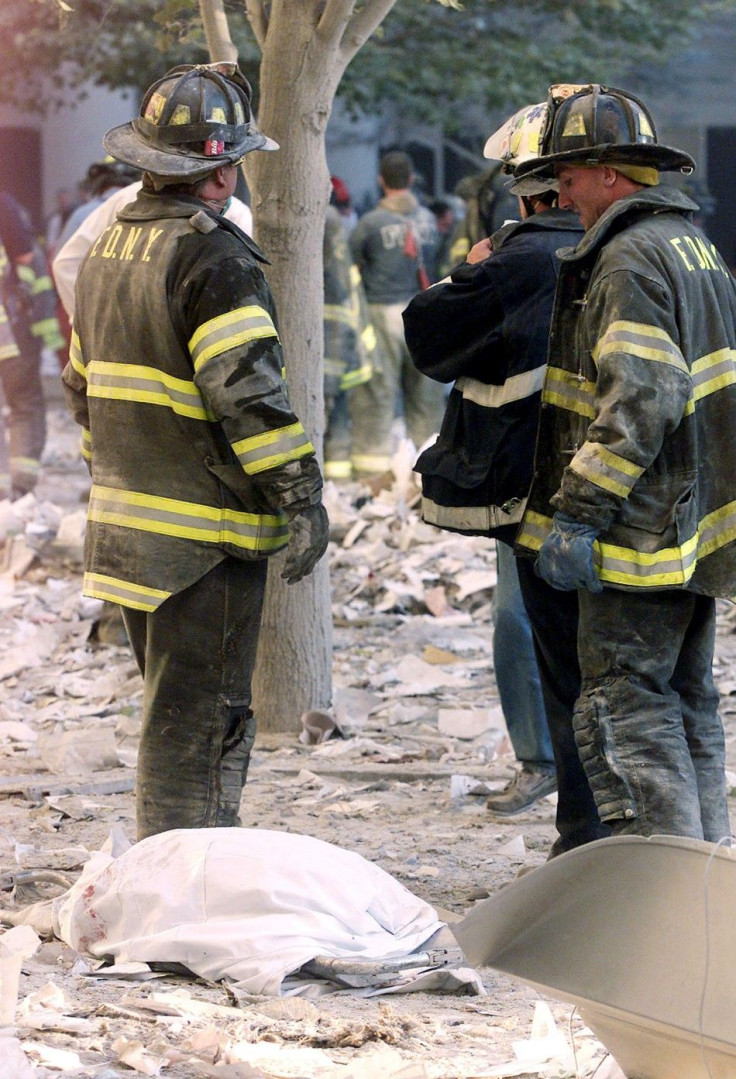Study Points to Ground Zero’s Health Risks for Responders

Beyond the rubble, debris, and destruction, exists several individuals who risk their lives daily and who made no exception on Sept. 11, 2001, despite hazardous toxins floating around in the air.
Ten years ago, al-Qaida terrorist attacks destroyed an entire complex of seven buildings featuring landmark twin towers at the World Trade Center in lower Manhattan, killing nearly 3,000 people.
In a first-of-its-kind clinical trial, researchers found that New York City firefighters and first respondents exposed to toxic dust and fumes during the 9/11 World Trade Center (WTC) disaster and its aftermath may be more likely to develop cancer than those unexposed.
The recent study, published Sept. 1 in the British medical journal The Lancet, found that roughly 10,000 firefighters who worked at ground zero were were 19 percent more likely to develop cancer than those unexposed; similarly other men who worked at the site had a 10 percent higher chance of developing cancer against a sampling of the general male U.S. population.
Researchers evaluated the health of male firefighters who were exposed to toxic dust, cancer-causing agents and smoke, as well as those unexposed over a period of seven years following the 9/11 attacks.
This study clearly shows World Trade Center exposure in these firefighters led to an increase in cancer, Dr. David Prezant of the New York City Fire Department, told Reuters.
The study showed that the most common types of cancer found in ground zero firefighters include prostate cancer, colon cancer, non-Hodgkin lymphoma and thyroid cancer.
Of those in the study, 8,927 were classified as exposed, meaning they spent at least one day at the site in the 10 months after Sept. 11, The Times reported. The cancer rate of the exposed group was only ten percent higher than that of American men over all.
Prezant, professor of medicine at Albert Einstein College of Medicine of Yeshiva University, noted that WTC exposure caused chronic inflammation and that such inflammation has been implicated as a risk factor for cancer in experimental and epidemiological studies.
This shows an increase in all cancers, Prezant said, adding the study was not designed to show increases in a particular type of cancer.
On Thursday, the U.S. Department of Health and Human Services (HHS) announced an appointment of members to the newly created World Trade Center Health Program’s Scientific/Technical Advisory Committee.
The new 15-member committee will review scientific and medical evidence and make recommendations to the administrator of the WTC Health Program, an organization within HHS that provides medical monitoring and treatment for WTC responders and survivors as a result of the 9/11 terrorist attacks.
The advisory committee will also discuss eligibility requirements for the program and WTC-related health conditions.
“Independent expert scientific advice from the panel will be essential when complex scientific questions arise, and this panel represents the best of the field, said John Howard, administrator of the health program.
Together with the WTC responder and survivor steering committees, the advisory committee will also assist in serving the health needs of those who continue to suffer the adverse health consequences of the terrorist attacks of September 11, 2001.”
The committee will begin meeting this fall in New York City.
© Copyright IBTimes 2024. All rights reserved.





















